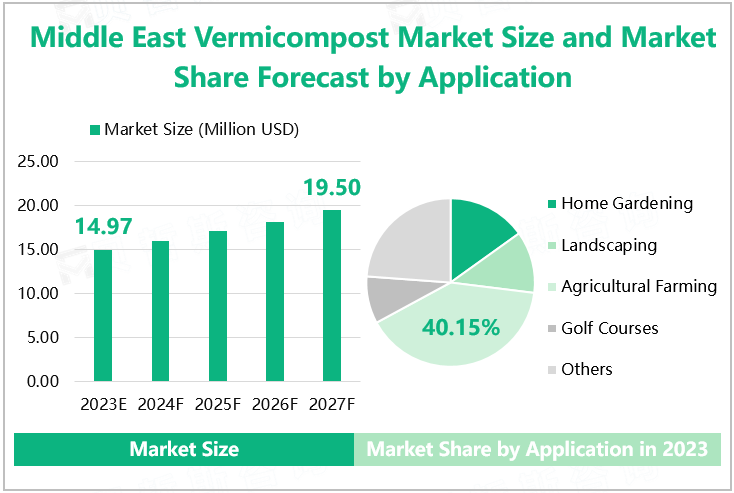Vermicompost, also known as earthworm mud or earthworm soil, refers to the feces excreted by earthworms after digestion. Vermicompost is a natural organic fertilizer that contains abundant organic matter, microorganisms, and trace elements. It has good breathability and water retention and is therefore widely used in fields such as horticulture, agriculture, and flowers.
According to the different components and contents, types of vermicompost can be classified as high organic matter, high nitrogen, high phosphorus, high potassium, etc; According to the difference in appearance characteristics, vermicompost can be divided into granular, powdery, and blocky forms; According to the different sources, vermicompost can be divided into farmed earthworm manure and wild earthworm manure. The composition and appearance requirements of earthworm manure vary depending on the application in different fields, so it is necessary to choose the appropriate species.
Overview of Overall Market Development and Analysis of Application Pattern
With people's pursuit of organic, environmentally friendly, and healthy lifestyles, the vermicompost market is gradually emerging. From the current market situation, the vermicompost market in the Middle East is still in its early stages, with a relatively small market size but a fast growth rate. This is mainly because agricultural development in the Middle East is still relatively traditional, and people's understanding and acceptance of organic fertilizers are not high enough. However, with the advancement of agricultural modernization in the Middle East and the increasing attention to environmental protection and health, the vermicompost market is expected to experience rapid growth.
According to our research data, the size of the vermicompost market in the Middle East in 2023 was $14.97 million. Due to its unique geographical location and climate conditions, the Middle East region has enormous potential for agricultural development. With the rapid economic development and population growth in the Middle East, the demand for agriculture is constantly increasing. Meanwhile, due to the abundant oil resources and rapid economic development in the Middle East, people's demand for high-quality, organic, and environmentally friendly agricultural products is gradually increasing. All of these provide broad market prospects for the development of the vermicompost market in the Middle East region. It is expected that by 2027, the market size of vermicompost in the Middle East region will increase to $19.50 million.
Middle East Vermicompost Market Size and Market Share Forecast by Application

Source: www.globalmarketmonitor.com
Analysis of Market Development in Major Countries
Research shows that Turkey is the largest consumer of vermicompost in the Middle East. The data shows that the consumption of Vermicompost in Turkey in 2023 was 5529 tons, the market revenue was $4.06 million, and the revenue share was 27.12%. Saudi Arabia ranked second with a share of 20.31%, with a consumption of 3950 tons of vermicompost and a market revenue of $3.04 million in 2023; The Egyptian market ranked third with revenue of $2.02 million and a market share of 13.49%.
Vermicompost Consumption, Market Revenue, and Revenue Share by Country in
2023
|
Countries
|
Consumption (Tons)
|
Market Revenue (Million USD)
|
Share
|
|
Saudi Arabia
|
3950
|
3.04
|
20.31%
|
|
United Arab Emirates
|
2243
|
1.74
|
11.62%
|
|
Egypt
|
2787
|
2.02
|
13.49%
|
|
Iran
|
2457
|
1.85
|
12.36%
|
|
Turkey
|
5529
|
4.06
|
27.12%
|
|
Qatar
|
1212
|
0.91
|
6.08%
|
Source: www.globalmarketmonitor.com
For more industry information, please refer to our latest released "2023 Global Vermicompost Market Analysis Report, Key Competitors, Market Effect Factors, Growth, And Forecast".
